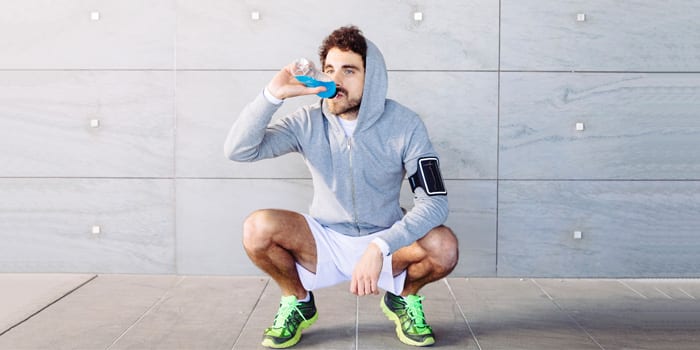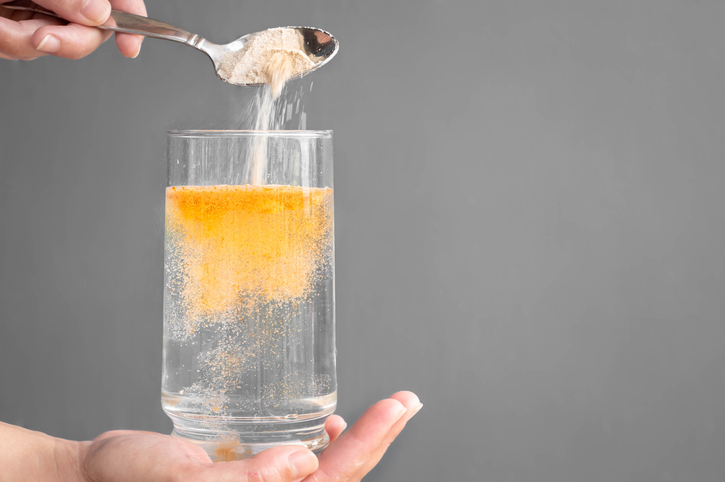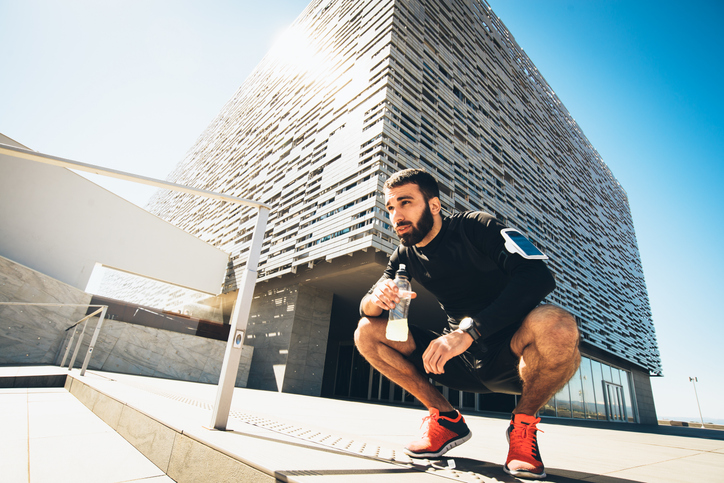Do You Need to Replace Electrolytes During Exercise?

Even if you don’t know what electrolytes are, you likely know they’re important. Why else would they be added to hydration drinks like Beachbody Performance Hydrate? But you’ve also likely never paused to consider what they are, what they do, or why they’ve commanded the hydration spotlight ever since Bill Parcells took the first “Gatorade shower” more than 30 years ago.
And here’s why you should: When taken in the right amounts at the right times (and under the right circumstances), electrolytes can significantly boost performance.
What Are Electrolytes?

Electrolytes are minerals that carry an electric charge, making them key players in processes throughout your body:
- Nerve function
- Neuron communication
- Blood pressure regulation
- Muscle contraction
- Cellular nutrient transfer
- Bone formation
The most critical electrolytes are potassium, sodium, and chloride — with magnesium and calcium playing important roles as well.
Typically, we’re good on sodium and chloride, because table salt is an electrolyte twofer, containing both, and we eat plenty of it. The average American consumes 3,300 mg of sodium a day — well more than the CDC’s recommended dose of 2,300 mg.
Potassium — found in such foods as bananas, potatoes, roasted turkey breast, and Swiss chard — is a different story. Men and women typically consume an average of 3,016 mg and 2,320 mg per day, respectively, falling about 300 mg short of the recommended amount per day.
For optimal health — especially for your heart, which depends on electrolytes to maintain its electrical impulses — it’s important to consume enough potassium, so go ahead start adding bananas to your smoothies and roasted turkey to your sandwiches.
But when it comes to workouts, salt is the key electrolyte. The reason: When you sweat, you not only lose water, but also high concentrations of sodium and chloride. Potassium loss is minimal.
Should You Always Replenish Electrolytes During a Workout?

As long as you start your workout well hydrated (indicated by clear pee) and well fueled (i.e., through consistent smart eating), you can skip the sports drink.
“If you’re healthy, work out once a day for less than 60 minutes, and are not an elite athlete, you probably don’t need to worry about actively replacing electrolytes,” says Toby Mundel, Ph.D., professor of kinesiology at Brock University. “A healthy and well-balanced diet should provide all of the necessary water, electrolytes, and carbohydrates you need.”
Unfortunately, almost no one starts a workout well hydrated. The vast majority of Americans drink less than eight cups of water a day, and more than 43 percent of Americans drink four cups or less, according to a survey by the CDC. As such, it’s smart (and certainly doesn’t hurt) to hydrate during exercise. Water will do the trick, but water plus electrolytes is even better.
Why a hydration drink is important for long workouts
Replacing water and electrolytes during longer workouts is even smarter. “For workouts lasting more than 60 minutes, you may benefit not only from a sports drink’s electrolytes, but also its carbs, which fuel muscular work,” says Heather Logan-Sprenger, Ph.D., associate health sciences professor at Ontario Tech University.
Her research shows that even mildly dehydrated cyclists pedal 13 percent slower, underscoring the need to not only rehydrate but also “re-electrolyte” during extended exercise sessions. “But one-size does not fit all when it comes to hydration,” says Logan-Sprenger. “Everyone has a different sweat rate and sweat-electrolyte composition.”
If you notice white salt stains under your armpits after a workout, you’re a salty sweater, she says. It may also be that you’re on a low-calorie diet so that you’re hitting your workouts with reduced glycogen stores or you’re feeling run down or cramping during your workouts.
In either case, a supplement like Beachbody Performance Hydrate — with electrolytes and a small hit of carbs — is a good idea.
